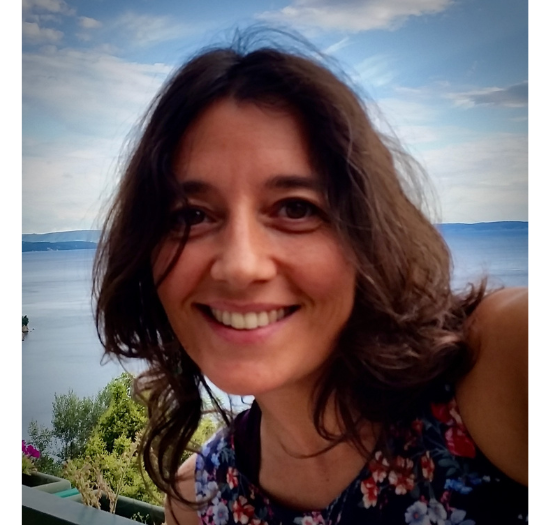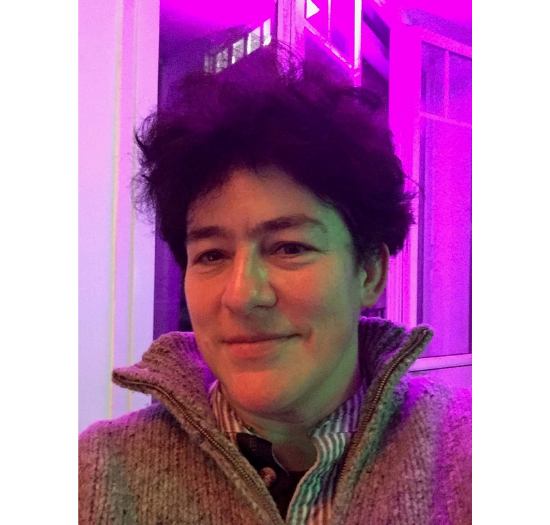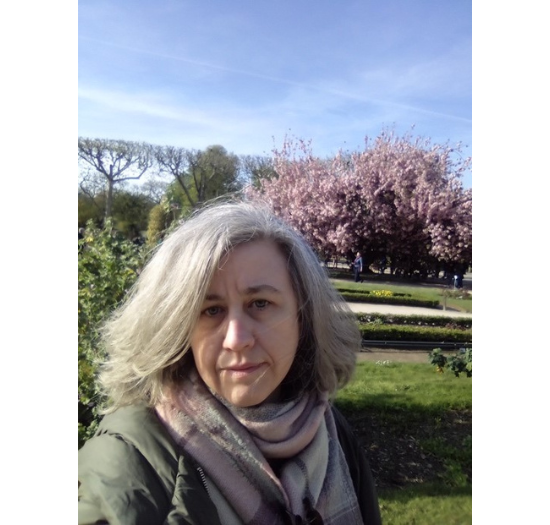RDA Open Call for RDA / EOSC Future Domain Ambassadors #2
EOSC Future
Research Data Alliance
30 June 2022 - 12:00 am CET
15 September 2022 - 04:00 pm CET
Individuals or Organisations
€10.000
This second Open Call for EOSC Future Domain Ambassadors offers up to €10.000,00 per grant to domain experts and skilled communicators to promote data sharing and open science practices in their disciplines.
RDA/EOSC Future is building a network of ambassadors to support activities designed to build awareness around the work and outputs of EOSC Future from a disciplinary perspective. This network will also help disciplinary experts grow their own networks and collaborate with like-minded people and organisations via RDA. Successful applications will ensure that benefits such as good data management and data sharing techniques are brought back to the disciplinary communities served and that domain-specific needs and input are streamlined into the work supporting the development of EOSC.
This call is additionally targeted towards applicants interested in raising awareness within under-represented research communities in EOSC, particularly:
- Research communities highlighted in a recent RDA4EOSC report that mapped the level of engagement of various disciplines within EOSC* https://www.rd-alliance.org/rda4eosc-research communities;
- Research communities that are not currently represented by a disciplinary Working Group in RDA, https://www.rd-alliance.org/rda-disciplines;
- Research communities that could benefit from enhanced engagement with EOSC.
Meet the grantees

RDA / EOSC Future Ambassador: Describing the application of the FAIR principles in the AR6 WGI IPCC context
What:
The United Nations Intergovernmental Panel for Climate Change (IPCC) is the leading international body for the assessment of climate change. It reviews and assesses the most recent scientific, technical and socio-economic information produced worldwide relevant to the understanding of climate change.
Who:
Lina Sitz, External Contractor for the Technical Support Unit of the Working Group I (WGI TSU) in the Intergovernmental Panel for Climate Change (IPCC), the United Nations body for assessing the science related to climate change.
Biography:
Scientific Domain:
Earth System Physics/Data management
Your Domain specific Engagement:
- Shared perspectives and joined conversations
- Discussions and communication of domain specific requirements between EOSC/RDA and the specific community
Your Promotion and Networking:
- Promotion of domain specific Open Science practices/EOSC/RDA at meetings and conferences, publications and presentations. For example: ORCID/LinkedIn profiles, project homepages, document repositories, etc.
- Lina and her activities are also featured on the RDA website
Your Connection to RDA WG/IG or CoP:
RDA COVID-19 Working Group: Attendance to the several virtual meetings to contribute in the writing the original draft, review and editing of the “RDA COVID-19 Recommendations and Guidelines on Data Sharing (1.0)” and “Fostering global data sharing: highlighting the recommendations of the Research Data Alliance COVID-19 working group” documents.
Pilot Data Stewardship strand of the CODATA-RDA Research Data Science schools: In collaboration with the entire group of students, writing original draft, review and editing “The CODATA-RDA Data Steward school.” paper.
Attendance at the First Foundational Course CODATA-RDA School of Research Data Science (2016, Trieste) and the Pilot Data Stewardship strand of the CODATA-RDA Research Data Science schools (2019, Trieste).
Technical support to the CODATA-RDA School of Research Data Science Website.
Academic activities applying RDA recommendations:
-
Project to share research data responsibly, to scientists working in LMICs countries. TEC calibrated service: making available to scientists around the world, global single station calibrated Ionospheric Total Electron Content data (ICTP, 2019).
-
Data and code archival and documentation of the IPCC Sixth Assessment Report of Working Group I: The Physical Science Basis, adopting the best practices in data archival as established by the international FAIR framework (IPCC, 2021-2022).
Country:
Italy/Argentina

RDA / EOSC Future Ambassador: Opening of data in the genomics domain
What:
Genomics is a field in Life Science where Computer Science contributes tremendously in the research advances. Personalized Medicine is a promising field in Life science, and it is also an interdisciplinary field with very high contributions of computer science, in particular AI and its sub-domain Machine Learning (and Deep Learning).
Who:
Isabelle Perseil is an expert in R&D in scientific computing (HPC, data management and research infrastructures) for the Life sciences, in one of the largest European life sciences research institutes, INSERM (the French NIH).
Biography:
Scientific Domain:
Scientific computing for Life science
Your Domain specific Engagement:
Isabelle and her activities are also featured on the RDA website.
Country:
FRANCE

RDA / EOSC Future Ambassador: Integrating research community from ethnic and migration studies domain into the Open Science environment
What:
The main goal of the project for Morales’ Ambassadorial role is to achieve a greater level of awareness of, engagement with and adoption of (1) RDA activities, groups, recommendations and outputs, and (2) EOSC as an overall structure and set of tools and services for the research community working on ethnic and migration studies across Europe.
Who:
Laura Morales is a Professor in Comparative Politics at Sciences Po, a research-led university specializing in the social sciences based in Paris.
Biography:
Scientific Domain:
Research community on ethnic and migration studies in Europe
Your Domain specific Engagement:
Laura and her activities are also featured on the RDA website.
Country:
France
RDA / EOSC Future Ambassador: Create incentive for researchers to share their data FAIRly
What:
Biodiversity informatics is an active community providing tools and data infrastructures for integrating data and linking different data types needed for biodiversity research based on FAIR data and Open Science principles.
Who:
Sofie Meeus is a researcher and data steward at Meise Botanic Garden in Belgium.
Biography:
Scientific Domain:
Biodiversity
Your Promotion and Networking:
Sofie and her activities are also featured on the RDA website
Country:
Belgium
RDA / EOSC Future Ambassador: Broadly train linguists in the methods of open science
What:
In my period as RDA Domain Ambassador, I will work with the RDA Linguistics Data Interest Group (LDIG) to develop a Needs Analysis survey, as a first step in determining which educational efforts are needed to broadly train linguists in the methods of open science.
Who:
Helene N. Andreassen is a Senior Research Librarian and head of library teaching and learning support at UiT The Arctic University of Norway.
Biography:
Scientific Domain:
Linguistics
Your Promotion and Networking:
Helene and her activities are also featured on the RDA website
Country:
Norway
RDA / EOSC Future Ambassador: 16S rRNA gene microbial community data - A dedicated database
What:
Since 2021, I have been building a database that facilitates the reuse of 16S rRNA gene microbial community data. This database is designed to be accessible to scientists regardless of their bioinformatics training or access to computing infrastructure, and stimulates the citation of data providers directly.
Who:
Stephanie Jurburg, Postdoctoral Researcher, German Centre for Integrative Biodiversity Research.
Biography:
Scientific Domain:
Microbial Ecology
Your Promotion and Networking:
Stephanie and her activities are also featured on the RDA website.
Country:
Germany
RDA / EOSC Future Ambassador: Open science and FAIR data management practices into the arctic data community
What:
I will seek to draw knowledge from, and about, RDA and EOSC into the arctic data community to strengthen open science and FAIR data management practices: build awareness, new skills and connections by participating in domain specific as well as RDA, EOSC and related open data, data science and data management events.
Who:
Jonas Koefoed Roemer, Data Manager and Analyst at Aarhus University
Biography:
Scientific Domain:
Arctic Data Community, Ecosystems and Climate Change
Your Promotion and Networking:
Jonas and his activities are also featured on the RDA website.
Your Outputs:
Jonas K. Roemer (2023): Greenland Ecosystem Monitoring: Journey Towards Meeting The FAIR Principles.
Country:
Denmark
RDA / EOSC Future Ambassador: "Ask Me Anything" style events on FAIR implementation and Open practices in Science
What:
The aim of this project is to deliver a series of "Ask Me Anything"-style events featuring keynote speakers from the RDA and EOSC groups focused on RDA activities and EOSC solutions in relation to FAIR implementation and Open practices in Science.
Who:
Sara El-Gebali is the co-founder of FAIRPoints
Scientific Domain:
FAIR Data Implementation
Your Promotion and Networking:
Sara and her activities are also featured on the RDA website.
Country:
Sweden
RDA / EOSC Future Ambassador: Information about RMD tools developed for the MSE community
What:
The project will improve the engagement of the MSE domain researcher in the RDA EOSC and related activities. The main aim is to create a website, which will provide the information about available RMD tools developed for the MSE community in a simplistic way. The information is now scattered all over the web.
Who:
Marek Cebecauer, head of the Czech Working Group for Material Sciences and Technologies.
Biography:
Scientific Domain:
Material Sciences and Engineering
Your Domain specific Engagement:
Material Sciences and Engineering (MSE) research domain drives global technological revolution and contributes to the improved quality of life. However, the domain belongs to those with less developed skills in research data management (RDM) and poor awareness of the EOSC ecosystem. The project should expand the group of MSE researches engaged in the EOSC and other global Open Science activities. A dedicated website with a comprehensive information about RDM tools and standards for the MSE domain will be created as part of this project and the MSE community will be informed about Open Science/RDM-related activities through well-established channel(s) followed by a majority of researchers – domain-specific, renowned scientific journals. The project will also bridge Czech MSE RDM community to similar activities abroad aiming to accelerate development of standards, ontologies and metadata models.
Your Promotion and Networking:
Marek and his activities are also featured on the RDA website.
Country:
Czech Republic
FAQs
Criteria and conditions
- Applicants should be working at the vanguard of data or research infrastructure activities in a specific research domain or cluster of domains. Preference is given to applicants from one of the underrepresented communities identified in the linked report* or those who can demonstrate a tangible benefit or need within their community for enhanced engagement with EOSC;
- Ideally, but not essential, be involved in RDA as active member, participant, chair, or contributor to RDA WG/IG activities, recommendations and outputs, especially in the past 12 to18 months;
- Operate as an influencer and have the ability to recruit collaborators across different segments of the community, particularly within their domain/discipline specific community(-ies);
- Have a good understanding of the European Data Infrastructures landscape, including initiatives such as the European Open Science Cloud, EOSC Association working groups, the FAIR movement, knowledge of the Open Science agenda, and how these intend to evolve in Europe;
- Reside and/or work in an EU country or associate countries.
Further conditions
- This call is not open to members of the EOSC Future consortium. Staff working on the EOSC Future project (i.e. directly funded through a beneficiary (its department or unit executing EOSC Future activities), as a LTP or seconded personnel) are not eligible to apply for grants under the RDA Open Calls and will be asked to tick a Declaration of Honour box upon application.
- A mid-term and final term report will be submitted, following a contractual agreement, highlighting progress, and lessons learned and potential contingency planning.
- Successful applicants may be asked to share their details (photo, bio, short project description, contact data) for dissemination purposes. All results created, where applicable, will be made available on the RDA website for 4 years.
- Travel/attendance to relevant conferences is encouraged and financially supported
The tasks for which applications are encouraged are as follows:
- Assess the level of awareness and engagement of their community in the EOSC, highlighting the barriers and the potential ways bridges can be built e.g. via RDA WG/IG, RDA Communities of Practice, existing connections to the European Science Clusters and infrastructures.
- Further strengthen the outreach activities within EOSC Future, e.g. widening the user base, outreach to potential users.
- Act as multipliers across disciplinary networks, at regional, national and thematic level.
- Present EOSC at community-related webinars (where applicable).
- Actively contribute to defining and promoting what EOSC Future and EOSC have to offer to specific domain/disciplinary community (-ies) (e.g. via RDA domain-specific WG/IGs presentations, webinars, training sessions, survey, etc.).
- Document domain-specific use cases that highlight the benefits of EOSC in a disciplinary context specific to the Ambassador´s community (e.g. how to address a specific need, a needed thematic service, increasing the value of disciplinary datasets if made available through EOSC, etc.).
- Document the RDA outputs and recommendations as connectors or enablers between disciplinary communities and the EOSC.
Applicants will be asked to provide a plan for their ambassadorial work highlighting how the envisioned activities will a) help clarify the accessibility and benefits of the EOSC to their specific community, will b) support awareness raising and engagement and impact in their community practices, and will c) in the longer term also help make a significant contribution in the context of EOSC.
Candidates will be asked to submit an application that will be evaluated according to the following criteria:
1. Excellence:
a) A statement describing the commitment to the vision of EOSC, the FAIR movement, national Open Science agendas (implementation), links to European data infrastructures or similar federated infrastructures. (25%)
b) A brief summary of previous and current activities demonstrating the applicant’s community involvement and any additional contributions to RDA related activities, Working/Interest groups, development and/or promotion and/or adoption of RDA Recommendations and Outputs in European Institutions throughout their communities. (25%)
2. Impact:
a) Sustainability and impact potential of the proposal and how this can be carried forward within the context of EOSC and RDA. Applicants should put forward plans for continuing the work beyond the funding period. Methodology of application. The proposal must be thought through, well-written, clear and demonstrate the methodology works. (20%)
3. Implementation (quality and efficiency):
a) A summary of the proposed activity plan for Ambassadorial work, how these are relevant to RDA, EOSC and the specific disciplinary community. Discuss the specific disciplinary barrier / issue they address, how RDA can be leveraged, how it benefits EOSC and the disciplinary community. Include a timeline for activities. (30%)
Your proposal should take into account the RDA Guiding principles and demonstrate commitment to it. Proposals should drive the principles of openness and community activities.
Evaluation:
Applications will be evaluated by experts with insights into the RDA and EOSC who have no conflict of interest (the applicant is not employed by the evaluator’s organisation nor is the recommendation(s) a direct result of their work).
Word limit for applications:
The word limit for your application will be via fields in a form each with a specific word limit. You can start with an application and save it in the system to return to it later. You are allowed to upload accompanying documentation, e.g., project plan and methodology.
Financial Contribution:
The RDA Open Calls programme for Domain Ambassadors will offer up to 10 grants of maximum €10,000 per grant to support the work in this area over the course of the EOSC Future project.
Applications will be evaluated by 3, external experts from the External Pool of Evaluators who possess insight in RDA and EOSC and who have no conflict of interest (the applicant is not employed by the evaluator’s organisation nor is the recommendation(s) a direct result of their work), on the basis of the 3 criteria of Excellence Impact and Implementation outlined above.
Timeline: The Ambassadors programme lasts until the end of the EOSC Future project in September 2023 – and aims to start in November 2022.
